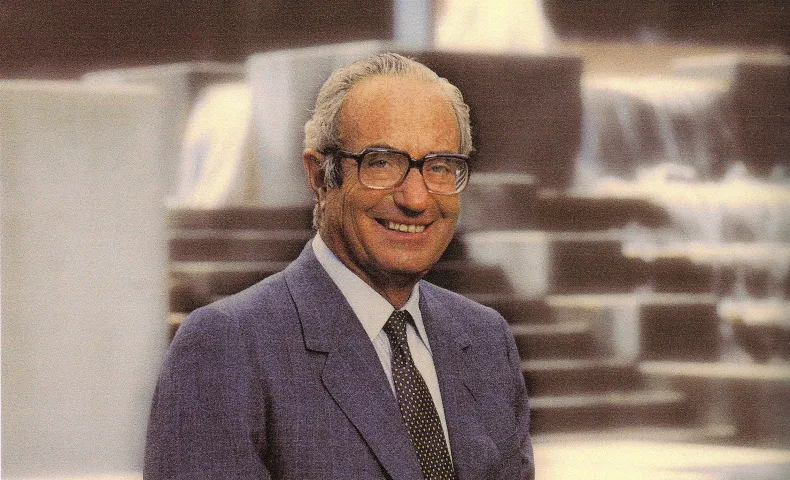Walter A. Haas, Jr.

Walter A. Haas, Jr. began his career at Levi Strauss & Co. in 1939. He became its CEO and president from 1958 through 1971 and was CEO and chairman of the board from 1971 through 1976. Walter led the company in its growth from a regional manufacturer and wholesaler of work clothes to the world’s leading apparel company. Acting on his values of social responsibility in his professional life, Walter Haas, Jr. strengthened Levi Strauss & Co.’s enlightened personnel policies and its position as a socially responsible international corporation. During the 1950s, he oversaw racial integration of the company’s plants. He also led the creation of Community Involvement Teams for Levi Strauss & Co. employees worldwide through which thousands of employees became volunteers and active members of their communities.
Even as he led Levi Strauss & Co., Walter Haas, Jr. devoted substantial energy and philanthropy to numerous nonprofit institutions: UC Berkeley, the Hunter’s Point Boys’ Club, and the San Francisco Chronicle Season of Sharing Fund, to name a few. He served on the boards of the Ford Foundation and the National Park Foundation. In 1980, he purchased the struggling Oakland Athletics baseball team and, with his family, transformed it into a thriving enterprise that not only won the World Series in 1989 but also became a vital economic and community asset for Oakland.
Together with his wife, Walter Haas established the Evelyn and Walter Haas, Jr. Fund in 1953 as a private foundation. Their philanthropy was influenced by the lessons he had learned in helping to make Levi Strauss & Co. a model corporate citizen. Of his family’s long tradition of giving, starting with Levi Strauss himself, Walter Haas used to say, “It’s in the genes.”
Eulogizing Walter Haas, Jr. in September 1995, Fund President Ira Hirschfield remarked, “I am struck by the rare combination of characteristics that he possessed: strong values, which he lived by; vision, imagination and guts; a belief and insistence upon achieving excellence; and, foremost, Walter had an absolute love of, commitment to, and belief in people. . . . This is a man who never forgot, not even for a day, how blessed he was, and how difficult life is for so many.”